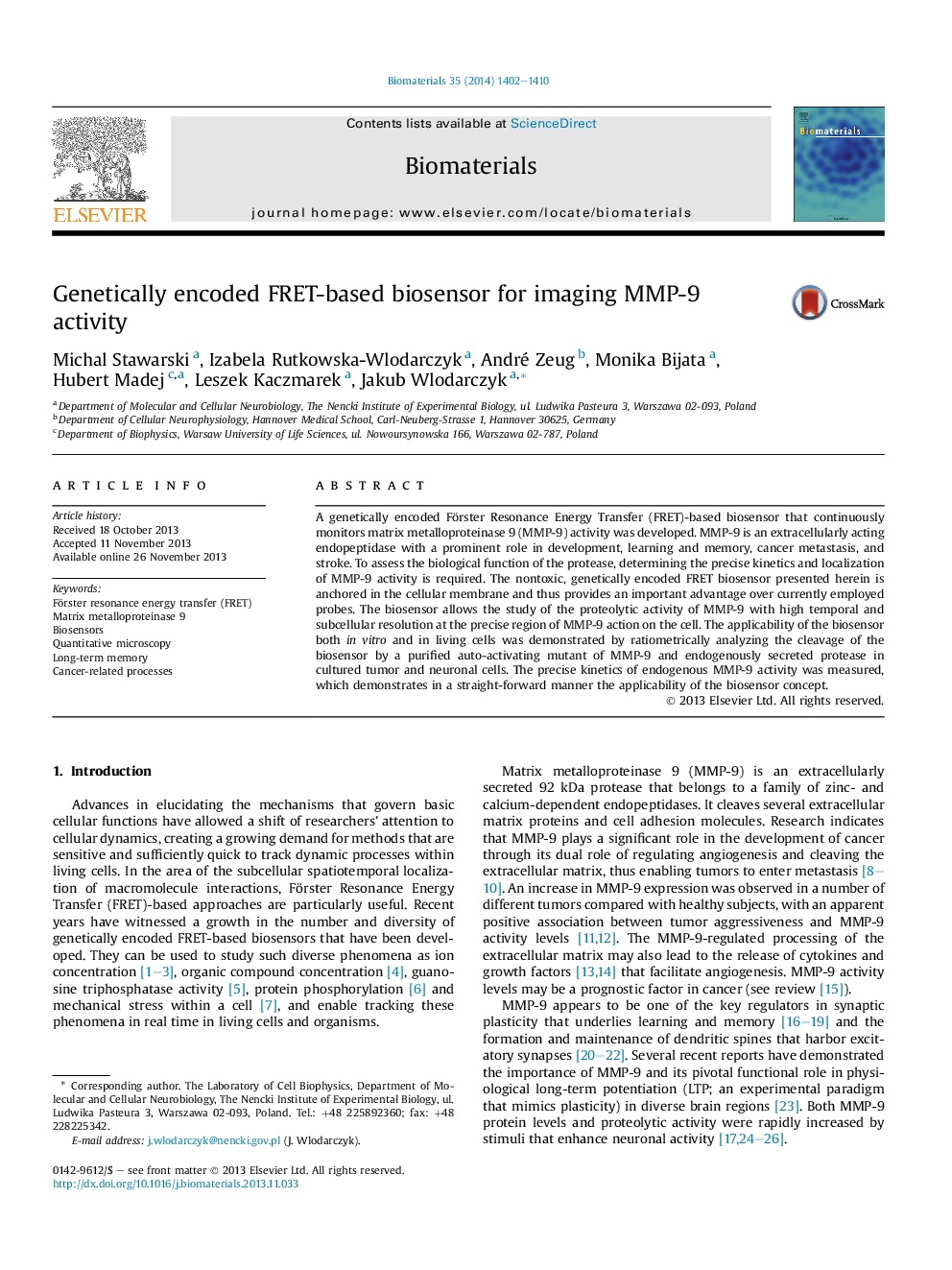| Article ID | Journal | Published Year | Pages | File Type |
|---|---|---|---|---|
| 10227418 | Biomaterials | 2014 | 9 Pages |
Abstract
A genetically encoded Förster Resonance Energy Transfer (FRET)-based biosensor that continuously monitors matrix metalloproteinase 9 (MMP-9) activity was developed. MMP-9 is an extracellularly acting endopeptidase with a prominent role in development, learning and memory, cancer metastasis, and stroke. To assess the biological function of the protease, determining the precise kinetics and localization of MMP-9 activity is required. The nontoxic, genetically encoded FRET biosensor presented herein is anchored in the cellular membrane and thus provides an important advantage over currently employed probes. The biosensor allows the study of the proteolytic activity of MMP-9 with high temporal and subcellular resolution at the precise region of MMP-9 action on the cell. The applicability of the biosensor both in vitro and in living cells was demonstrated by ratiometrically analyzing the cleavage of the biosensor by a purified auto-activating mutant of MMP-9 and endogenously secreted protease in cultured tumor and neuronal cells. The precise kinetics of endogenous MMP-9 activity was measured, which demonstrates in a straight-forward manner the applicability of the biosensor concept.
Keywords
Related Topics
Physical Sciences and Engineering
Chemical Engineering
Bioengineering
Authors
Michal Stawarski, Izabela Rutkowska-Wlodarczyk, André Zeug, Monika Bijata, Hubert Madej, Leszek Kaczmarek, Jakub Wlodarczyk,
